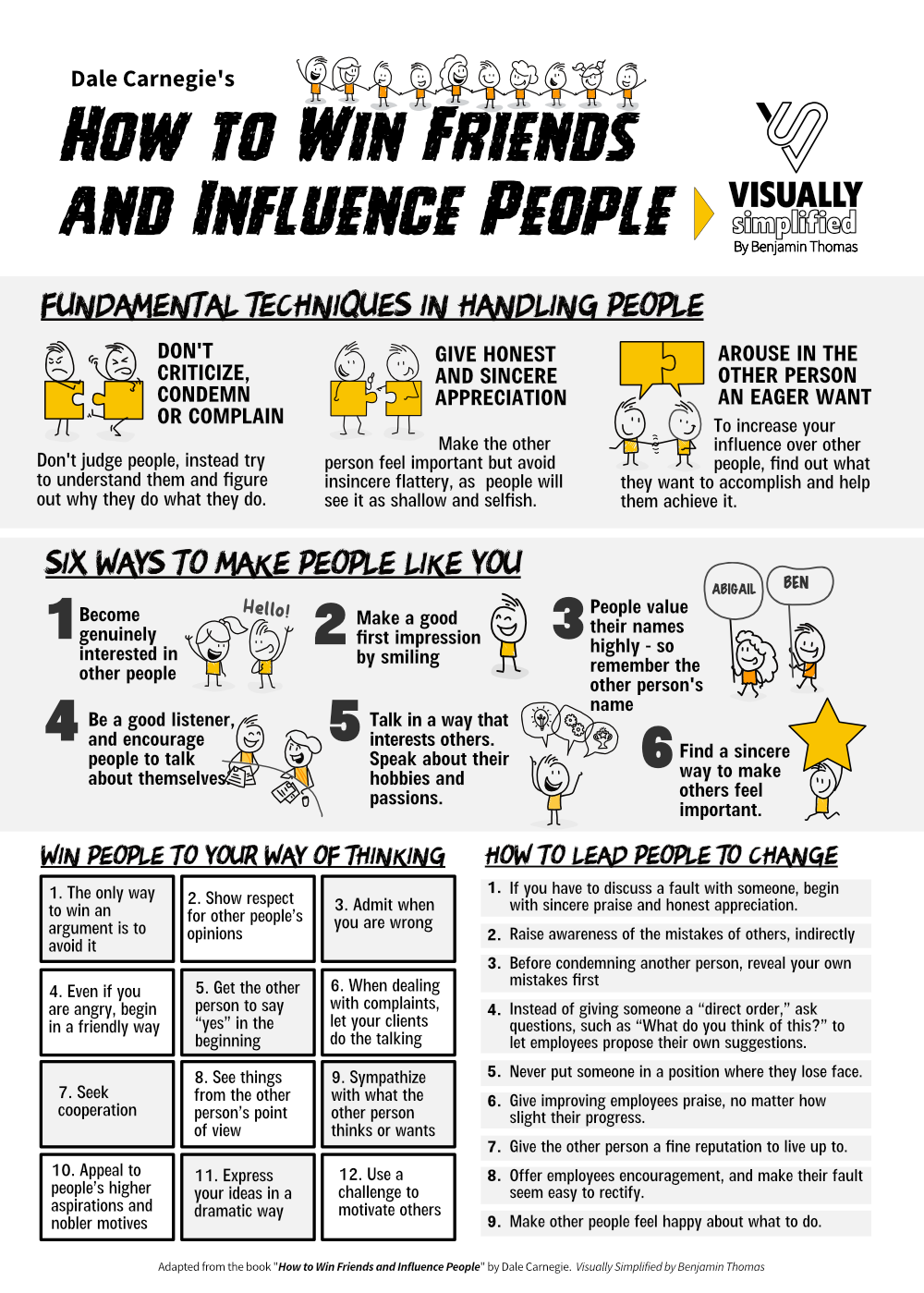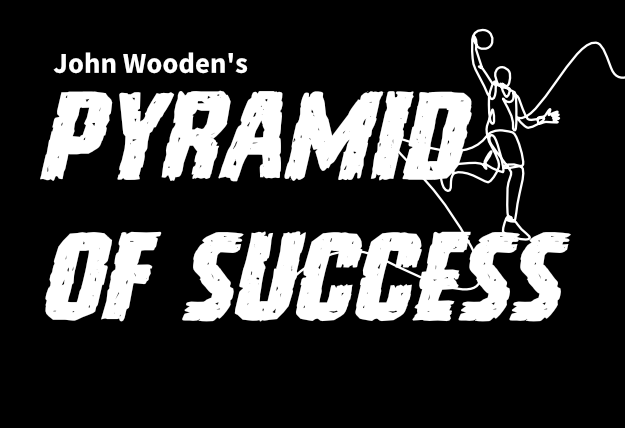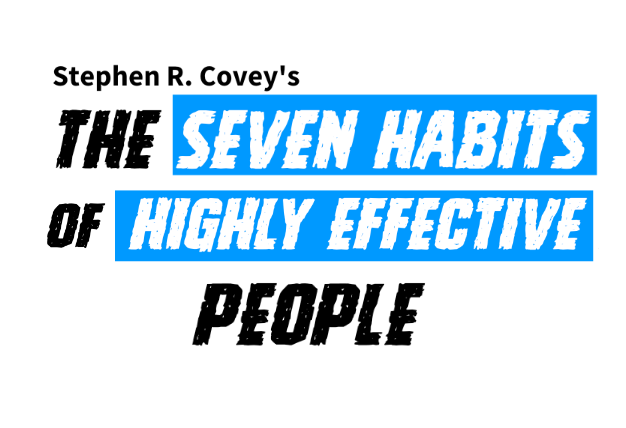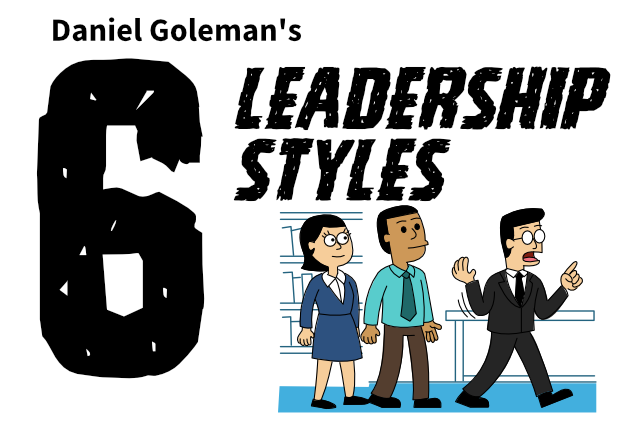How to win friends and influence people

Dale Carnegie was a renowned author and teacher of self-improvement and interpersonal skills. His book “How to Win Friends and Influence People,” published in 1936, became a bestseller.
Carnegie’s other notable works include “How to Stop Worrying and Start Living” and “How to Develop Self-Confidence and Influence People by Public Speaking.” He focused on topics such as salesmanship, public speaking, and corporate training. Carnegie’s principles continue to be influential in personal and professional development.
Summary of “How to Win Friends and Influence People” by Dale Carnegie
Fundamental Techniques in Handling People
- Be genuinely interested in other people.
- Avoid criticizing, condemning, or complaining about people.
- Encourage others to talk about themselves.
- Acknowledge your mistakes quickly.
- Before criticizing someone, talk about your own mistakes.
- Praise all improvements, no matter how small.
- Start with changing yourself before trying to change others.
- Make others feel important and never undermine their sense of importance.
- Remember people’s names as it is the sweetest sound to them.
- Express your ideas dramatically and use illustrations to convey them effectively.
Six Ways to Make People Like You
- Be genuinely interested in others.
- Make a good first impression by smiling.
- Remember people’s names and relevant information about them.
- Be a good listener and encourage others to talk about themselves.
- Talk about the interests and passions of others.
- Find sincere ways to make others feel important.
How to Win People to Your Way of Thinking
- Avoid arguments and disagreements.
- Respect other people’s opinions.
- Admit your mistakes quickly.
- Begin conversations in a friendly manner, even if you’re angry.
- Start with questions or statements that evoke agreement.
- Let others express their complaints and concerns fully.
- Seek cooperation and let others generate ideas.
- Understand the other person’s perspective.
- Sympathize with others and appeal to their noble motives.
- Express your ideas dramatically and vividly.
- Use challenges to motivate others.
Be a Leader
- Begin discussions with praise and appreciation.
- Address mistakes indirectly to raise awareness.
- Discuss your own mistakes before condemning others.
- Ask questions instead of giving direct orders.
- Avoid putting others in a position where they lose face.
- Praise improvements, no matter how small.
- Give others a fine reputation to live up to.
- Provide encouragement and make faults seem easy to rectify.
- Make others happy about trying your suggestions.






